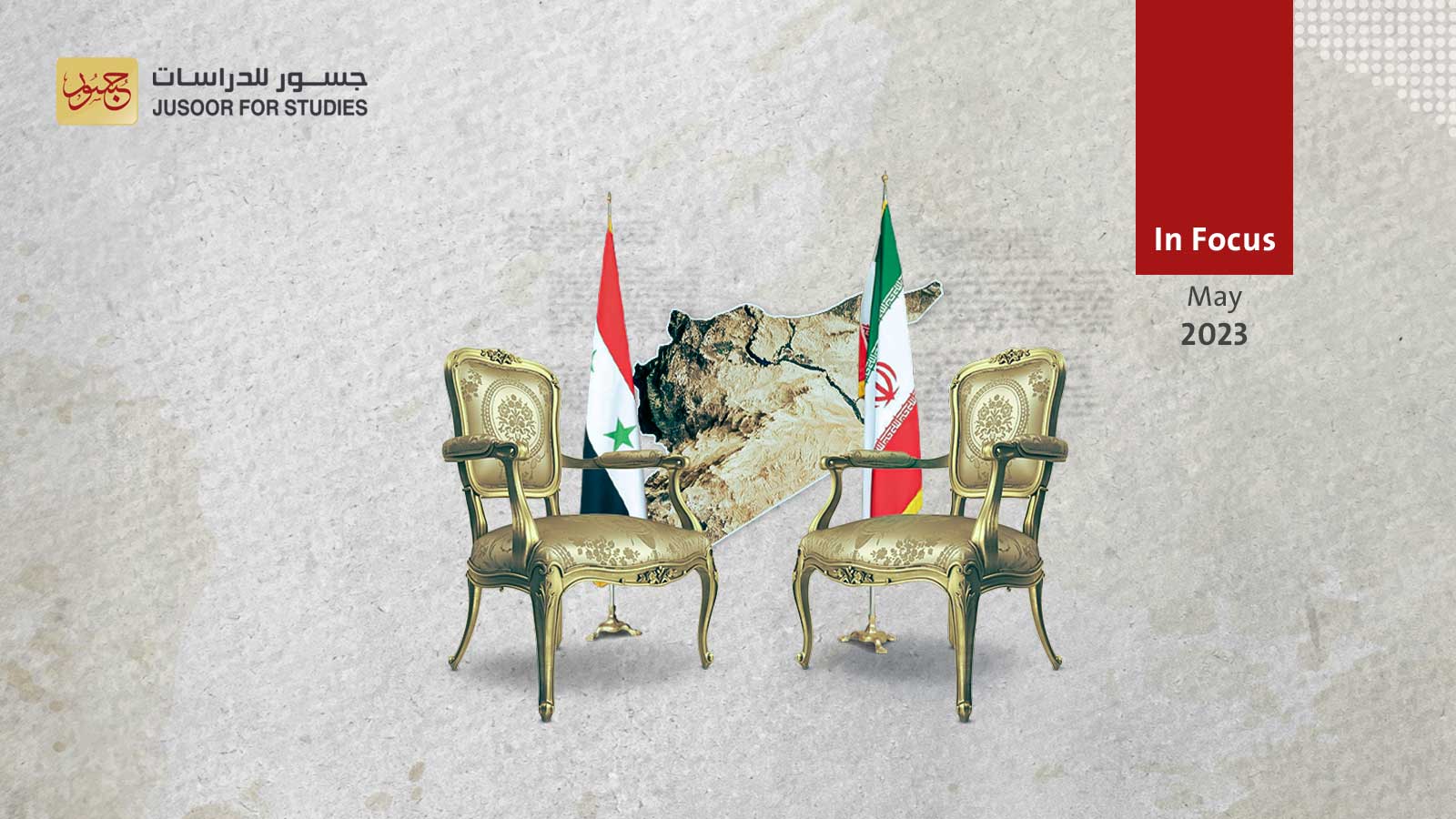An Iranian President flies to Syria for the 1st time since 2011: Motivations and implications
Iran’s President, Ebrahim Raisi arrived in the Syrian capital, Damascus, on Wednesday, May 3, 2023, marking the first official visit by an Iranian president to Syria in more than 13 years. Iranian presidents before this visit had contented themselves with making phone calls with Bashar al-Assad and sending diplomatic, economic, and military delegations to Damascus, despite their full support for the regime. In contrast, Al-Assad visited Tehran in 2019 and again in 2022.
The first visit by the Iranian president to Damascus was scheduled to take place at the end of 2022, but was postponed until early 2023. After that, there was a delay in setting a date for the visit, as Iran imposed itself on the Türkiye-the regime Russian-mediated rapprochement, turning the trilateral track into a quadrilateral one.
It is noticeable that President Raisi's visit to the Syrian capital Damascus coincides with a new momentum for the Arab normalization track with the Syrian regime, following the improvement of Saudi-Iranian relations. New initiatives for a solution in Syria have emerged after meetings in Jeddah and Amman, which, despite their differences, reflect Iran's relatively unaligned position on a settlement in Syria, which does not align with the stalled political process in Geneva or the decisions of the United Nations.
In other words, Iran finds in a visit as such an appropriate opportunity to support the regime's hardline position in dealing with new solution initiatives. This applies to all issues. Politically, the regime is working on imposing national principles on any constitutional content and making them a condition for the resumption of the Constitutional Committee's work, while also seeking to continue to escape from implementing Resolution 2254 (2015). Militarily, the regime call for the complete withdrawal of the Turkish troops from Syria and stop supporting the armed opposition factions.
Previously, there was no real political value or benefit to an Iranian president visiting Damascus, given the international isolation imposed on the regime, which undermines any efforts to translate the influence that Iran has gained in reality. However, the current visit of the Iranian president comes amid a partial retreat of that isolation, diplomatically at least, especially since most Arab countries, Turkey, and some European states engaged in normalization efforts with the regime.
Prior to the visit, an Iranian economic delegation visited Damascus and held talks with the regime on debt, dues, maritime transport, investment, and other issues. In other words, Iran is working to complete the legal environment for its economic influence in Syria, by signing further agreements and obtaining commitments that ensure it will collect gains and compensations during the early reconstruction and recovery phase; especially Iran expects to witness strong support during the upcoming period.
Due to the presence of the Minister of Defense and military figures accompanying the Iranian President's delegation, there is a military aspect to the visit, which involves signing agreements based on previous ones with the Syrian regime. Tehran aims at increasing its influence by controlling the decisions of the military establishment, including areas of training, arming, and dealing with the issue of militias similar to the Popular Mobilization Forces in Iraq, in a way that ensures the establishment of an army within an army.
In general, the visit of Raisi to Syria has political and military implications more than it does in economics. Iran wants to send a message to all international and regional actors, including Israel, while Russia is preoccupied with the Ukrainian war. This is similar to the massage that was intended by Ahmadinejad's visit to Damascus in 2010. That visit came after the end of the 2008 Gaza War and the 2006 South Lebanon War.








